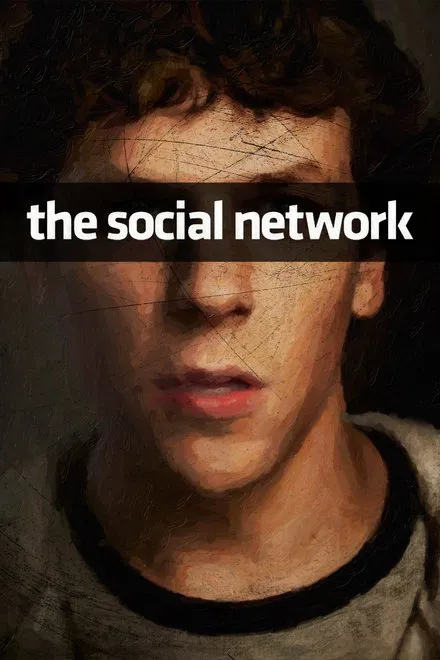
Directed by: David Fincher
Starring: Jesse Eisenberg, Andrew Garfield, Justin Timberlake, Armie Hammer, Max Minghella, Rashida Jones
💻 Introduction: The Birth of a Digital Giant
The Social Network (2010), directed by David Fincher and written by Aaron Sorkin, dramatizes the founding of Facebook and the seismic shifts it brought to business, culture, and personal relationships. Based on Ben Mezrich’s book “The Accidental Billionaires,” the film is as much about social ambition and ethical ambiguity as it is about technology. At its center is Mark Zuckerberg, portrayed by Jesse Eisenberg as a prodigy whose brilliance is matched only by his awkwardness, insecurity, and ambition.
🧠 Genius and Alienation
The film opens with Zuckerberg’s rejection by Erica Albright, a moment that crystallizes both his personal wounds and his drive to matter in the world. The screenplay is razor-sharp, blending rapid-fire dialogue with legal depositions that frame the story as a battle for ownership, recognition, and legitimacy.
As Facebook grows from a dorm-room project to a global empire, the lines between innovation and theft, friendship and rivalry, are steadily blurred. Zuckerberg’s intelligence is both his weapon and his shield, allowing him to outmaneuver competitors but isolating him from authentic connection.
💼 Betrayal, Lawsuits, and the Price of Power
The film traces the breakdown of Zuckerberg’s partnership with Eduardo Saverin (Andrew Garfield), the gradual encroachment of Sean Parker (Justin Timberlake), and the lawsuits brought by the Winklevoss twins. Each relationship is a study in shifting alliances and conflicting values. Success is depicted not as a moment of triumph, but as an ongoing negotiation between ambition, loyalty, and conscience.
Fincher’s direction is clinical, almost cold, emphasizing the emotional costs